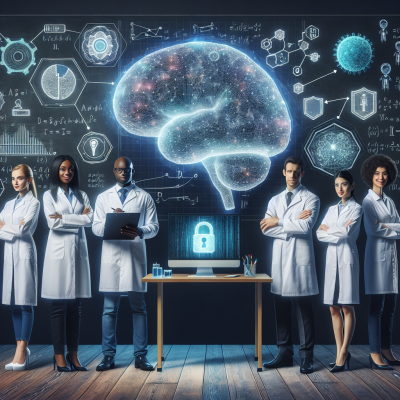
The Growing Concern Over Advanced AI Development
Artificial Intelligence continues to evolve at a breakneck pace—transforming everything from healthcare and education to finance and transportation. Yet, with each breakthrough emerges new concerns about safety, oversight, and potential misuse. One of the most respected voices in the AI community, Yoshua Bengio, is now sounding an alarm over how AI systems are being developed, highlighting the urgent need for a safer and more responsible approach.
Who Is Yoshua Bengio and Why His Warning Matters
Yoshua Bengio, a pioneer of deep learning and a recipient of the 2018 Turing Award, is not new to the discussion around ethical AI. However, his recent warning marks a significant shift in tone. He has gone from cautious optimism to deep concern, urging the global community to rethink how advanced AI models are built and deployed.
According to Bengio, the current trajectory of AI research and deployment poses “potentially catastrophic risks”. In particular, he points to large language models, like those powering generative AI tools, which can be easily manipulated or cause unintended consequences.
The Hidden Risks in Modern AI Systems
While AI brings immense opportunities, Bengio emphasizes that today’s development practices suffer from a few deeply problematic trends:
- Lack of transparency: Many AI models are trained and released without sufficient oversight or public accountability.
- Profit-driven priorities: Tech companies are racing to release the most powerful models, often sacrificing safety in the process.
- Insufficient safeguards: Open-ended systems like generative AI can be misused for producing disinformation or even weaponized through malicious code generation.
Bengio fears that if these issues are not addressed, the consequences could extend beyond individual harm to societal and geopolitical instability.
Calls for a Global AI Governance Framework
To mitigate these risks, Bengio urges for the creation of a new international agency that would oversee the development and deployment of advanced AI systems. Just as the world came together to establish frameworks for nuclear energy and aviation safety, he advocates for a similar coordinated effort for AI.
This agency would be responsible for:
- Evaluating and certifying high-risk AI models before public deployment
- Mandating transparency in training data and algorithms
- Facilitating cross-border cooperation among governments, companies, and research institutions
Such a measure would not only build public trust but also ensure that AI serves humanity in a beneficial and controllable manner.
The Importance of “Red-Teaming” AI Systems
Another safety measure Bengio recommends is red-teaming—a process borrowed from cybersecurity where experts test a system’s vulnerabilities before it’s released. Red-teaming involves deliberately challenging AI systems with edge cases, adversarial prompts, and hypothetical misuse scenarios to evaluate their response and robustness.
This practice can reveal blind spots in systems that appear accurate under standard testing, making it a crucial tool for risk assessment in AI deployment.
Balancing Innovation with Responsibility
There’s no doubt that AI holds transformative potential. From diagnosing rare diseases to optimizing traffic patterns in smart cities, its applications are both vast and impactful. However, Bengio’s point is that capability must be matched with caution. The race to dominate AI markets should not outstrip the need for ethical safeguards.
Organizations and governments alike need to:
- Implement comprehensive AI risk audits
- Develop policies around responsible data usage
- Ensure clear guidelines for AI’s role in sensitive fields like justice and defense
The Role of the Public and Policymakers
Achieving safer AI development isn’t only the job of technologists. Bengio highlights the need for multi-stakeholder involvement. Policymakers, civil society, educators, and even lay users must engage in discourse about AI’s future. The goal is to ensure inclusivity in decision-making and hold corporations accountable for the tools they create.
Conclusion: A Call to Collective Action
The warnings from figures like Yoshua Bengio should not be dismissed. As one of the foundational architects of modern AI, his insights carry significant weight. The path forward should not be about halting progress, but rather about guiding it wisely.
Safer AI development is not just a technical challenge—it’s a moral imperative. By combining innovation with regulation, transparency with security, and speed with care, society can harness the benefits of AI without falling prey to its worst risks.
The future of AI is still being written. The question is—who will hold the pen?


Leave a Reply